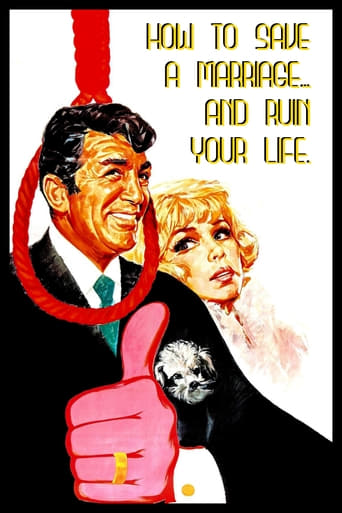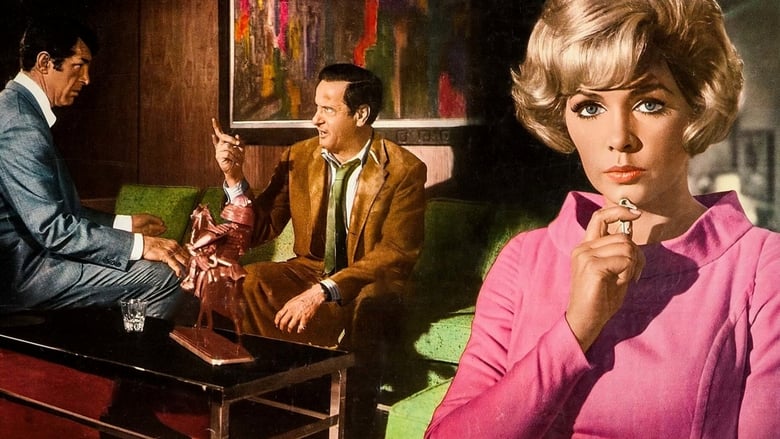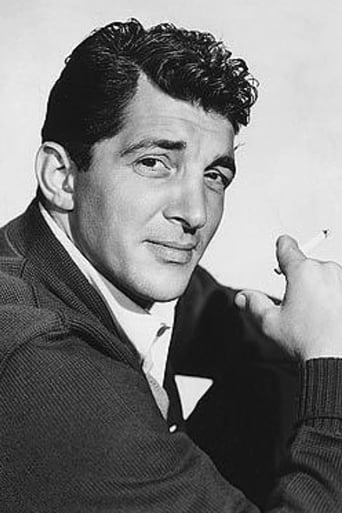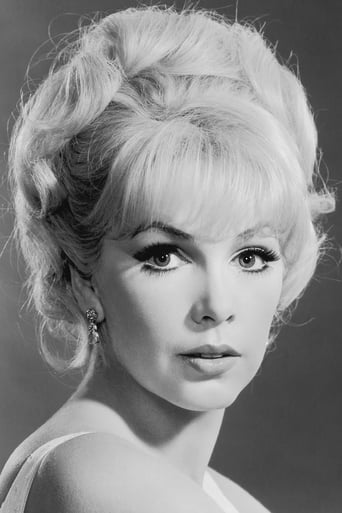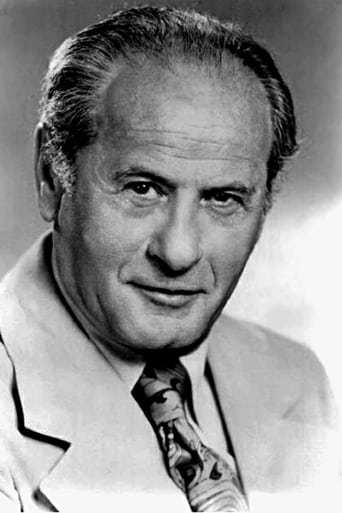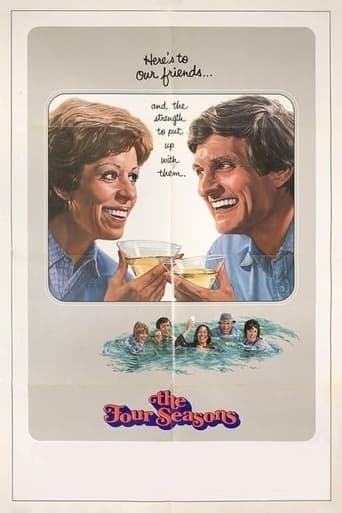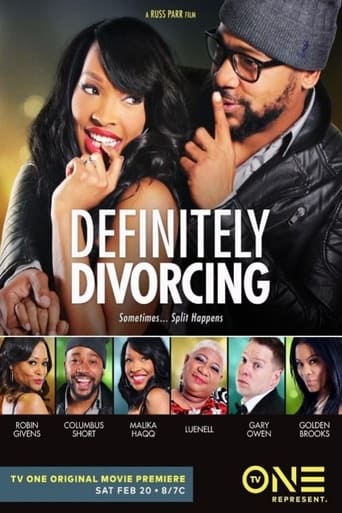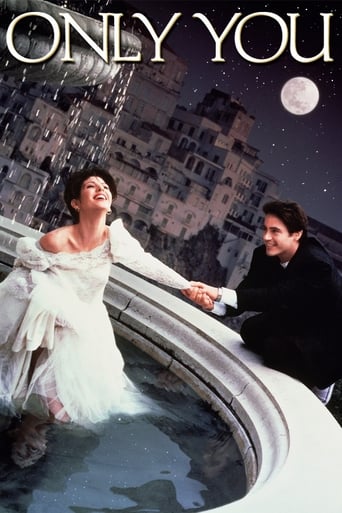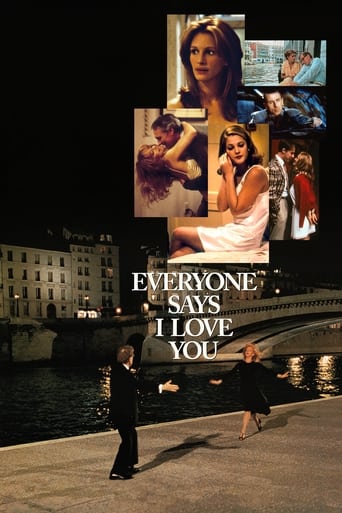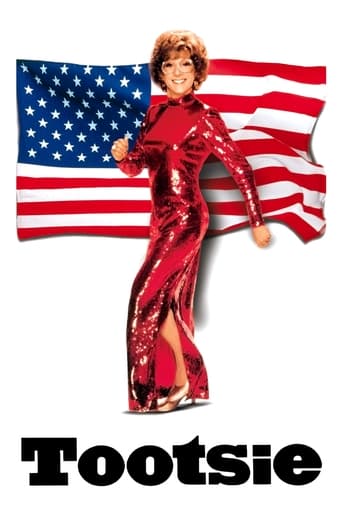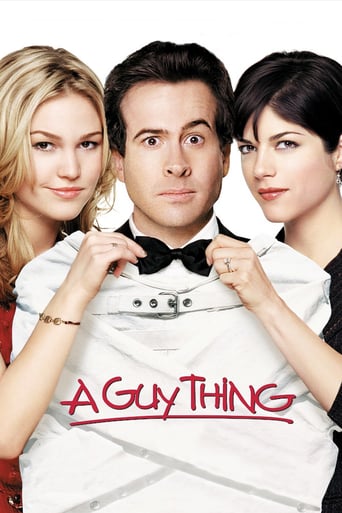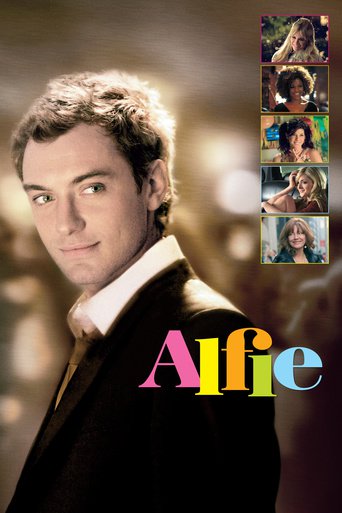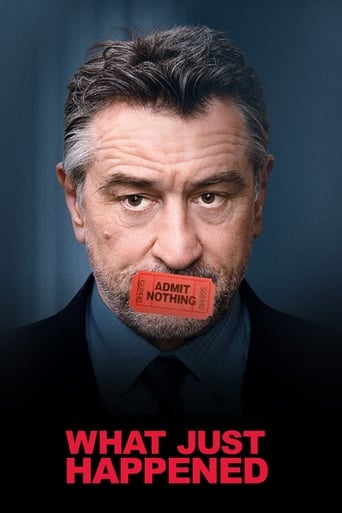How to Save a Marriage and Ruin Your Life (1968)
Wealthy playboy David Sloane wrongly believes good girl Carol Corman is his best friend's mistress.
Watch Trailer
Free Trial Channels
Cast


Similar titles
Reviews
the leading man is my tpye
A Brilliant Conflict
It's a mild crowd pleaser for people who are exhausted by blockbusters.
It's funny, it's tense, it features two great performances from two actors and the director expertly creates a web of odd tension where you actually don't know what is happening for the majority of the run time.
This is one of the most cleverly crafted comedies of all time. Much of it is subtlety, but a lot also is cultural. The writers managed to tuck even arcane bits of humor into niches here and there. Some of it would be considered corny by itself. But included in this masterfully whimsical plot it adds to the overall humor. Innuendo, clichés, stereotypes, metaphors and family lore are wrapped into this package to make a truly outstanding comedy. "How to Save a Marriage and Ruin Your Life" takes some gentle pokes at aspects of culture and society. Morticians, lawyers, retail managers, divorcees, the men's club set, spoiled socialites and others receive barbs. But all of that is folded into a plot that is fairly simple and straightforward, except for a case of mistaken identity. Most of the credit for this film has to go to the screenplay and the writers, Stanley Shapiro and Nate Monaster. Shapiro also produced the film. The two had worked on a couple of comedies together, and separately wrote some of the top comedy films and TV programs of the 1950s through 1970s. Shapiro won an Oscar for best screenplay in 1959, for "Pillow Talk." It was the first of three smash hits he wrote that starred Doris Day and Rock Hudson. He wrote comedy for films that starred Cary Grant, Michael Caine, Steve Martin, David Niven, Charles Boyer and Marlon Brando. He produced some of the best of the 25 films for which he wrote screenplays. He also wrote novels. His last great comedy film was "Dirty Rotten Scoundrels" of 1988 – one of the funniest films of all time. The cast for this film mostly is very good, and the kudos for the writers isn't to diminish the contributions of the cast. Other reviewers have noted that this was the type of film that might see Rock Hudson and Doris Day in the leads. Well, there you have the connection with Stanley Shapiro's writing. The very best performances in the film, clearly are those of Eli Wallach as Harry Hunter, and Anne Jackson as Muriel Laszlo. They were married in real life for 66 years at the time of his death in 2014. Other supporting cast are very good, especially Jack Albertson as Mr. Slotkin and Betty Field as Thelma. Stella Sevens is good as Carol Corman and Dean Martin is fair as David Sloane. Martin's facial expressions seem too contrived and manipulated. He was better at slapstick and one-liners. If this film were 20 years earlier, I could see Cary Grant and Irene Dunne bringing down the house in the lead roles. Or, 10 years before then, perhaps William Powell and Myrna Loy or another more ingénue type of the period. "How to Save a Marriage and Ruin Your Life" has a straightforward plot. A store owner has a mistress. When the wife suspects after two years she goes to their mutual friend, a bachelor who was best man at their wedding. She tells him she's going for a divorce. He says he can't believe it of his friend, and he'll check it out. When he finds out it's true, he sets out to save the marriage. But not by trying to reconcile the couple. He wants to expose the mistress whom he's sure is a gold-digger. Several other details have a bearing on and change this from a simple to a convoluted affair. We in the audience are on to the details all along, but none of the cast are. The store owner's wife has been living the life of high society and has become a constant nag and critic of hard-working hubby. He met a woman who has had a rough life but has weathered it with an uplifting and charitable spirit. A vengeful, lusting store personnel manager starts a rumor about the boss having a mistress. The friend hears that it's known and all of them have the wrong woman. The young woman who wouldn't go out with the lecherous personnel director is the picture of purity and wholesomeness. She helps a friend by dropping off a delivery one night on her way to her French lessons. The store boss answers the door.One of the funniest scenarios happens a couple of scenes apart. Harry Hunter (Eli Wallach) gives the background of his mistress. She's a courageous woman who came through a hard life of alcoholic father, orphanage, etc. Later, David Sloane is with Carol, whom he mistakenly thinks is the mistress, and he asks about her background. He is dumbfounded when she rattles off her wholesome, all-American heritage from pioneer stock and happy upbringing. The description of her family members will have you in stitches. This is one funny movie with many lines of comedy. Check the Quotes section under this IMDb Web page of the film for more comedy. Here are some samples. Muriel, "When he comes home at night and he's quiet and you ask him what's wrong, and he says, 'Nothing,' never say, 'What do you mean, nothing?' Because he doesn't mean nothing. It's something. If he really had nothing on his mind, he'd tell you all about it." Harry, "How do you describe a saint?" David, "Usually, they're dead. Now a saint she ain't. So tell me a few of her mortal qualities."Harry, pointing to a big shaggy dog in his station wagon, "Mary's mother gave that to me as a present. She trained it. She would show it photos of me and say, 'Kill! Kill!'" David, "Harry, cradle the affectionate little creature in your arms. Add a wing to your house so Mary's mother can be with you forever." Harry, "Will you roll up your sleeves so I can see the needle marks?"
This film is sophisticated. That is it doesn't have teens, sex or gore. What it does have is fantastic writing that ties up all the loose ends. You have to listen closely because the witticisms come in a hurried staccato. Turn away and you might miss something. The pencils. The picket sign Martin carries. The hobos. The folk songs. Muriels thesis on what men think about. At the end guess what happens...a happy ending. That's novel isn't it? We should have a wake for great writing. It's been dead for years. Stella Stevens would have been a star in the old studio system she deserved to be. She plays a good, kind, smart, sexy woman. Dean displays his very natural charm. Wallich is great as an imperfect good man.
Dean Martin steps nicely into a role that Rock Hudson would have been cast in with How To Save A Marriage. Others here think that Stella Stevens is standing in for Doris Day. But for myself Stella's part is way to kookie for something Doris would have done. If Doris was offered the part she wisely refused. Stella's role opposite Dean is similar to what Paula Prentiss did opposite Rock in Man's Favorite Sport.The title does say it all. Dino is a pal of philandering Eli Wallach who is married to Katherine Card and who Card confides in about her suspicions that Wallach is straying. So Dino resolves to do interference between Wallach and the other woman.The problem is that Dino misses his target and starts putting the moves on Stella Stevens who works in Wallach's department store. Eli is really seeing his real life wife Anne Jackson. When it all falls apart Stella makes a united stand with Anne and their landlady Betty Field against the predatory male. Stella puts poor Dino through quite a ringer before she's found out.In a very broad part that calls for overacting Eli Wallach steps nicely into the Tony Randall/Gig Young part. He easily steals the film from the two stars. How To Save A Marriage is the last and one of the lesser modern dress comedies that Dean Martin did after splitting from Jerry Lewis. From then on his film career would be mostly westerns and Matt Helm films. You want to see Martin showcased best in screen comedy look at All In A Night's Work or Who's Got The Action.
Toddling in at the tail end of the cycle of "chaste" sex comedies popularized by Doris Day, this installment has several things working in its favor and a few things not. Martin plays a confirmed bachelor whose friend Wallach is carrying on an affair with a woman (Jackson) who is the caring and nurturing antithesis of his needling and superficial wife Bard. In an effort to save the marriage, Martin decides he will seduce the lover and break up the affair, but, due to some contrived circumstances (nearly always the case in films of this ilk), he winds up cavorting with the wrong girl! Stevens is the curvaceous doll that Martin mistakenly targets and it leads to any number of complications and misunderstandings. Martin is decent here, easily bringing more energy and commitment to the role than he had been in other films of this era (such as the Matt Helm frolics, one of which counted Stevens as a co-star.) Stevens gives her all to her role. To say that she is luscious is akin to saying that golf courses contain a small amount of green. She not only looks amazing in her various, snug, Moss Mabry creations, but she turns in an astute and captivating performance. Wallach, who typically worked in pictures far more serious than this, gives an interesting performance. Jackson gets rather short shrift, with the bulk of the attention and close-ups going to Stevens, though she manages to play her role effectively. Ironically, these two actors playing illicit lovers were, in fact, married in real life at the time! (They still are as of this writing, making them one of Hollywood's more successful unions.) A number of stalwart character actors turn up in support. Field plays a knowing landlady who's lines vary in quality, but all of which are given as much spin as she can muster. Albertson (who would reunite with Stevens for "The Poseidon Adventure" a couple of years later) plays a kindly neighbor. Oppenheimer is a lascivious office manager who helps to get the ball of misunderstandings rolling and Furth is a drippy date of Stevens. Fans of "Will & Grace" will enjoy spotting Morrison in the beginning as Stevens' sassy co-worker. The film has that unmistakable crisp, clean quality of mid-to-late 60's Hollywood with the almost sterile sets and the well-tailored clothes. (Stevens wears a jacket in her first scene that seems awfully difficult and elaborate for a single woman to be dealing with!) The music, apart from the credits number crooned by The Ray Conniff Singers, is not among Michel Legrand's more memorable efforts. Unfortunately, the script and story are not only more than a little dated and almost offensive in the presentation of gender roles, but also the endless contrivances and coincidences threaten to make the entire film become tedious. It's only the goodwill mustered up by Stevens and a few of her co-stars that saves the film from being a trite exercise in idiocy. Fans of hers owe it to themselves to see one of her most significant screen roles and to revel in her extreme loveliness. Others may find themselves losing interest as the rather silly plot meanders toward its conclusion.

